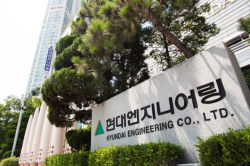
— South Korean prosecutors raided the offices of Hyundai in February and removed large boxes of materials in a search for evidence of concealing defects and waiting too long to order recalls.
Five months later those prosecutors believe they have built a case against three Hyundai executives who have been indicted for violating the South Korean Vehicle Management Act, a law that says a violator may face 10 years in prison.
The three former executives were indicted based on concealing defects in Theta II engines by knowing of the problems in September 2015 but waiting until April 2017 to order recalls.
The Theta II engines are prone to fail and even catch fire due to metal debris invading the engine oil, debris that came from manufacturing problems with the crankshafts. The metal interferes with the oil flow through the connecting rod bearings and damages the connecting rods.
South Korean prosecutors believe Hyundai knew the Korean-built Theta II engines were defective in at least 2015 due to a recall issued that year in the U.S.
The 2015 U.S. recall included 470,000 model year 2011-2012 Sonatas equipped with 2-liter and 2.4-liter Theta II engines. However, Kia vehicles weren't recalled in 2015 because they were allegedly manufactured on a different production line.
Kia did eventually recall about 618,000 model year 2011-2014 Optimas, 2012-2014 Sorentos and 2011-2013 Sportages equipped with Theta II engines. But Kia said the reason for the U.S. recall was engine failures caused by engine bearings that wore out too early, an allegedly different problem than the Hyundai vehicles.
Hyundai also expanded the 2015 recall in 2017 by adding another 572,000 vehicles equipped with Theta II engines, including 2013-2014 Hyundai Sonatas and Santa Fe Sports.
Hyundai says the entire ordeal is a mistake because the delay in recalling the vehicles in South Korea wasn't to conceal defects in the Theta II engines, but was allegedly caused by the Motor Vehicle Management Act itself.
According to the automaker, questions have been raised about the constitutionality of the Act, and consumers and manufacturers alike have been confused by the law. Hyundai also says recall procedures in the Act are especially broad and unclear.
According to Hyundai, prosecutors want to criminally prosecute the company for recall requirements that have no clarity.




